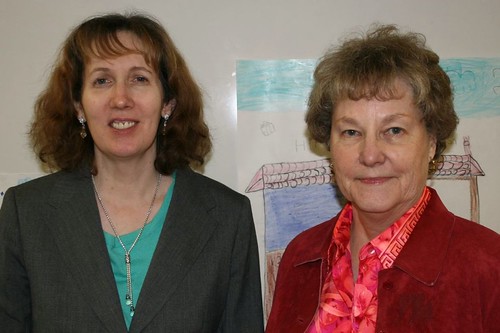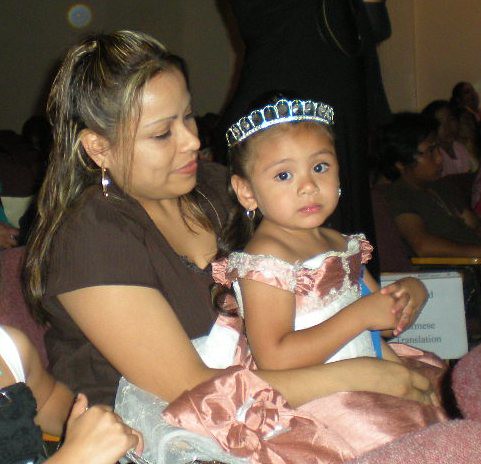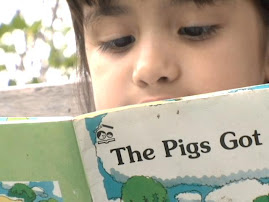Researchers, a photo by hippyprogram on Flickr. Angela Nievar on the left and Arminta Jacobson, UNT Professor on the right.
I asked Angela Nievar, Assistant Professor here at UNT, to reflect on why she's interested in HIPPY as a research project. Her thoughts are below. I'd like to take advantage of this opportunity to thank Dr. Nievar for her interest in HIPPY.
From Dr. Nievar...
I started working with HIPPY shortly after I came to UNT. I had worked on evaluation projects with other home visiting models as a graduate student. In the past, I saw it as a great way to find out valuable information about a population that was really hard to access. One of my first publications was from data we collected from a home visiting project. The amazing thing about HIPPY was that the home visiting model actually worked, with long-term outcomes for children's achievement as well as short-term changes in the home environment. My thinking has shifted now from simply "this is a great way to access low-income families" to "this is a great program that helps children in low-education, low-income families succeed." I see home visiting in general as a model that helps even moreso than preschool, and my two latest publications (after a few years of hard work with HIPPY) show positive effects for home visiting in general (Nievar, Van Egeren, & Pollard, 2010) and positive effects for HIPPY at a site close to home (Nievar, Jacobson, Chen, Johnson, & Dier, 2011). The project coordinators and home visitors have really worked with us. They have been helpful and kind, and we haven't had the usual red tape that slows down grants even getting started, much less funded. So, yes, Carla, HIPPY is a valuable research project in terms of monetary rewards, but more than that, it is personally rewarding and valuable. My research has been used to inform policy and practice at the national level, based on a project that can help children succeed. To me that is more of a success story than any publication or grant that could simply further my career.






